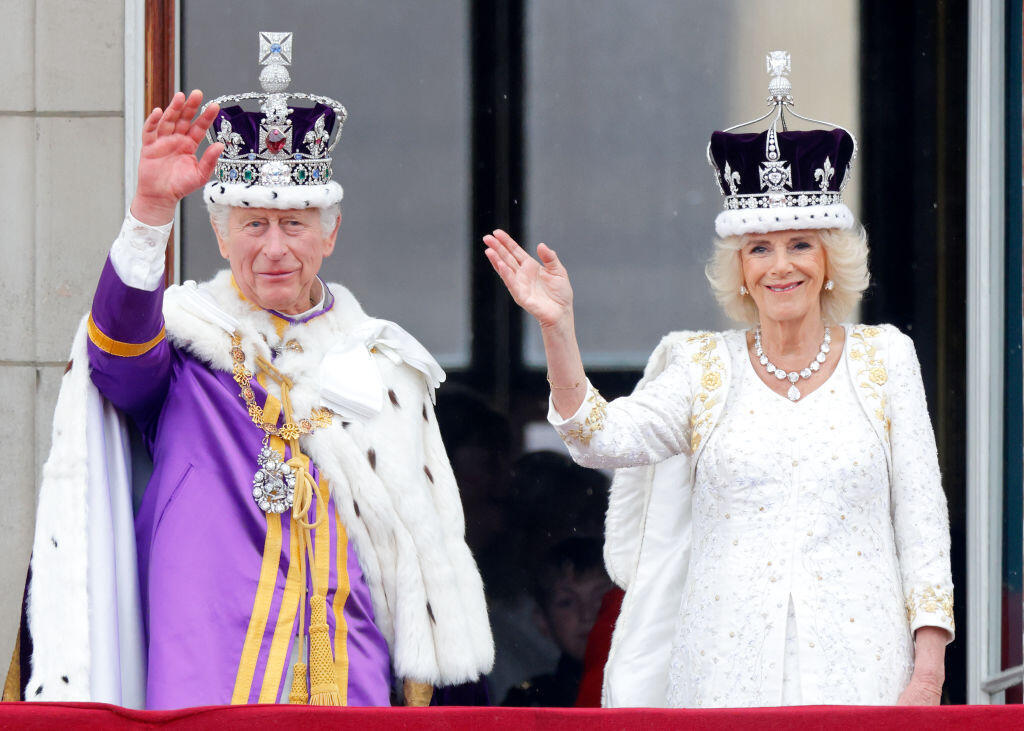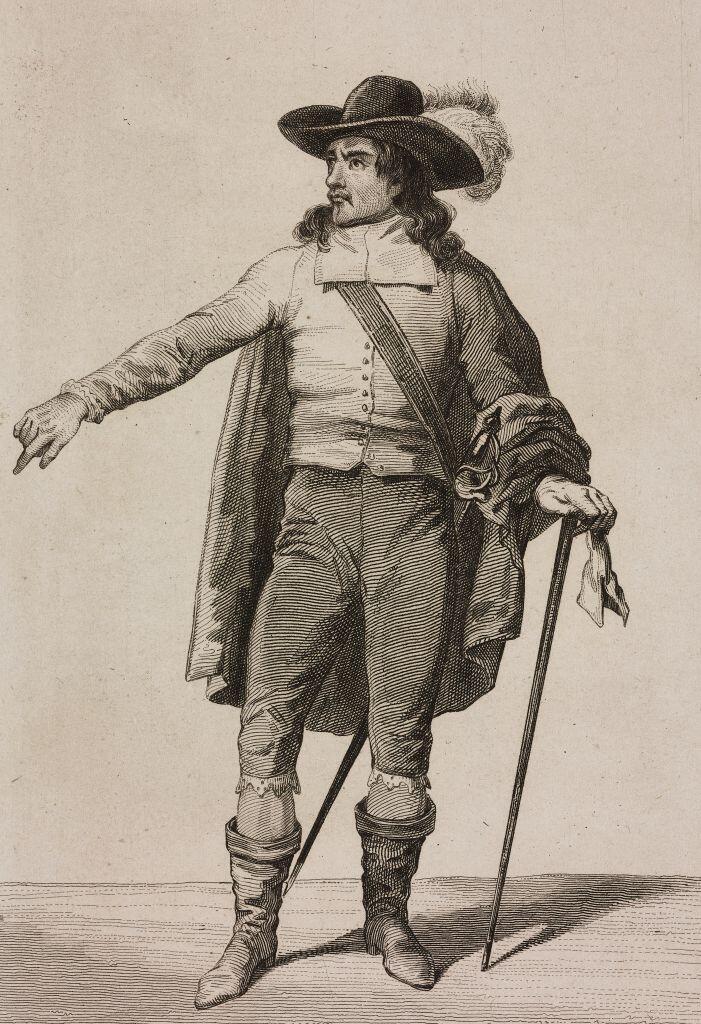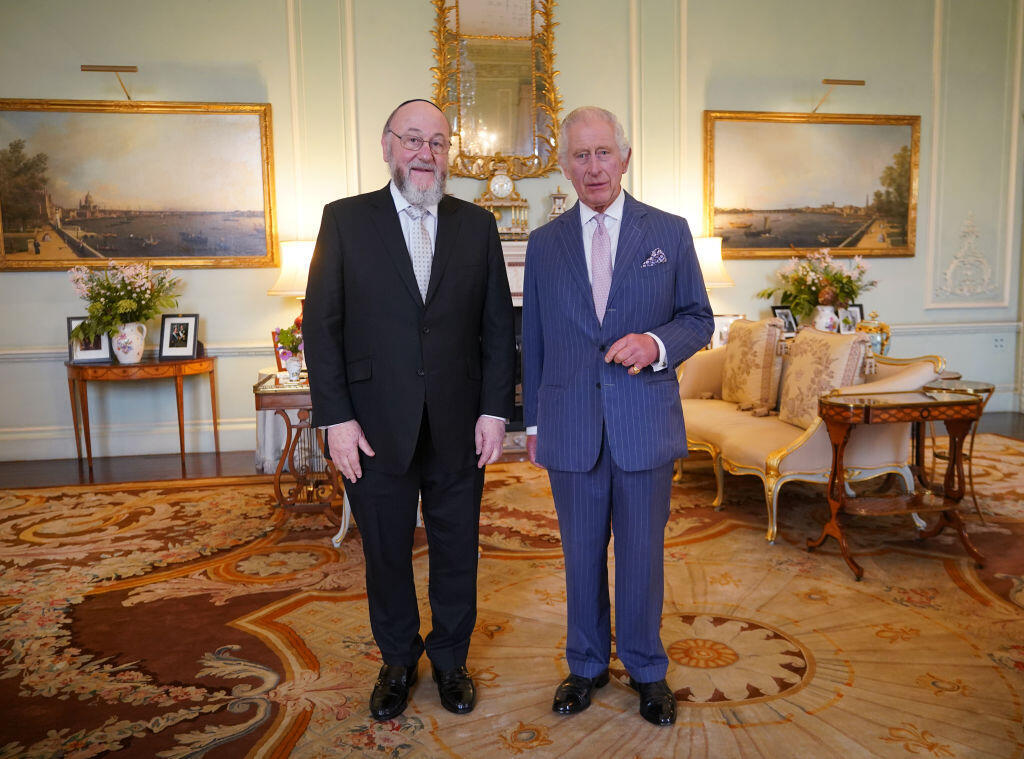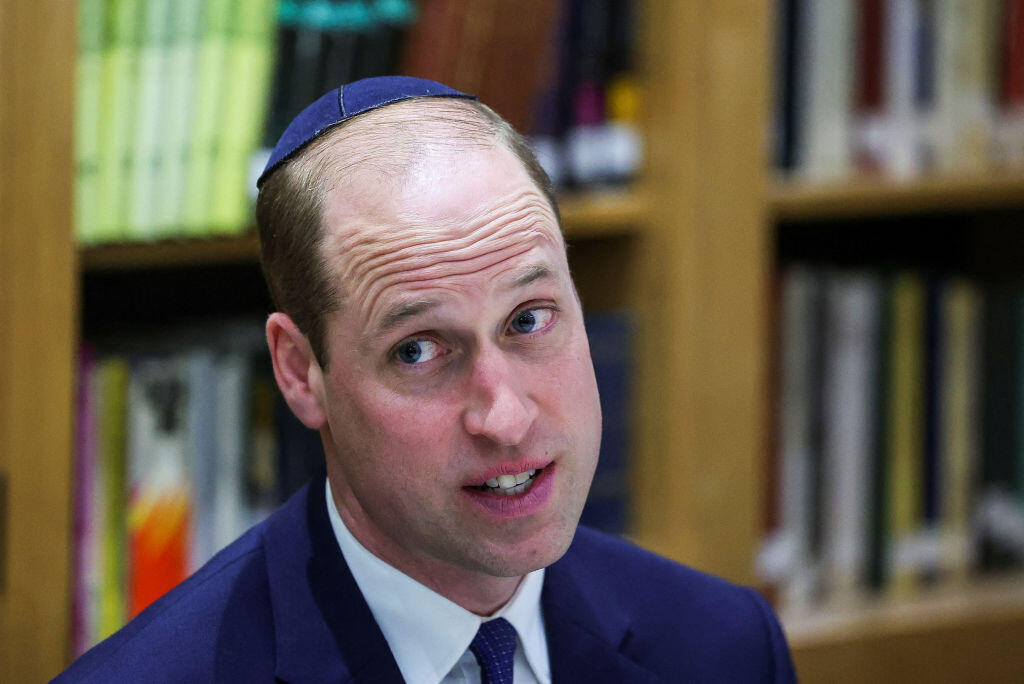Getting your Trinity Audio player ready...
The British royal family has always fascinated the Israeli public. The palace dramas have been a staple of news and gossip websites in Israel over the years, ever since the time of Princess Diana, whose tragic death broke hearts worldwide, including in Israel.
To this day, Israelis avidly follow the dramas and stories emerging from Buckingham Palace. But is this interest, if not affection, mutual? Spoiler: No.
Before we dive in, a bit of history is in order: The year was 1066, when Jews first arrived on the British Isles following the Norman Conquest. History tells us that for over a century, they thrived as moneylenders, but a wave of antisemitic riots, starting at King Richard I's coronation banquet, quickly changed their situation.
Although the new king opposed the rioters and even issued a protection decree for the Jews, the locals, eager to cancel their debts, continued their murderous rampages.
In 1278, during the reign of King Edward I, hundreds of Jews were imprisoned on charges of coin clipping. It is believed that at least ten percent of the Jewish population was executed until Edward expelled the Jews in 1290.
Although some Jews moved to England after being expelled from Spain in 1492, it was only in 1656 that Jews were officially welcomed back by English general Oliver Cromwell, who had overthrown the monarchy during the English Civil War.
The relationship between the British royalty and Israel has always been tenuous. In fact, no British monarch has ever visited Israel, despite the fact that Princess Alice of Battenberg, the mother of the late Prince Philip, husband of the late Queen Elizabeth II, is buried on the Mount of Olives in Jerusalem.
Alice, born deaf, was born at Windsor Castle in England but spent most of her childhood in Germany and Malta. In 1903, she married Prince Andrew of Greece and Denmark, and together they had five children, four daughters and one son, Philip.
In 1930, Alice was diagnosed with schizophrenia and was committed to a sanatorium in Switzerland for two years. After her release, she lived separately from her husband and dedicated her life to charity work in Greece.
Fast forward to the main point: Alice’s four daughters, Philip's sisters, supported the Nazis during World War II, and all of Alice’s sons-in-law served in the Wehrmacht. Despite this, Alice maintained contact with her daughters but, unlike them, devoted her efforts to saving Jews.
9 View gallery
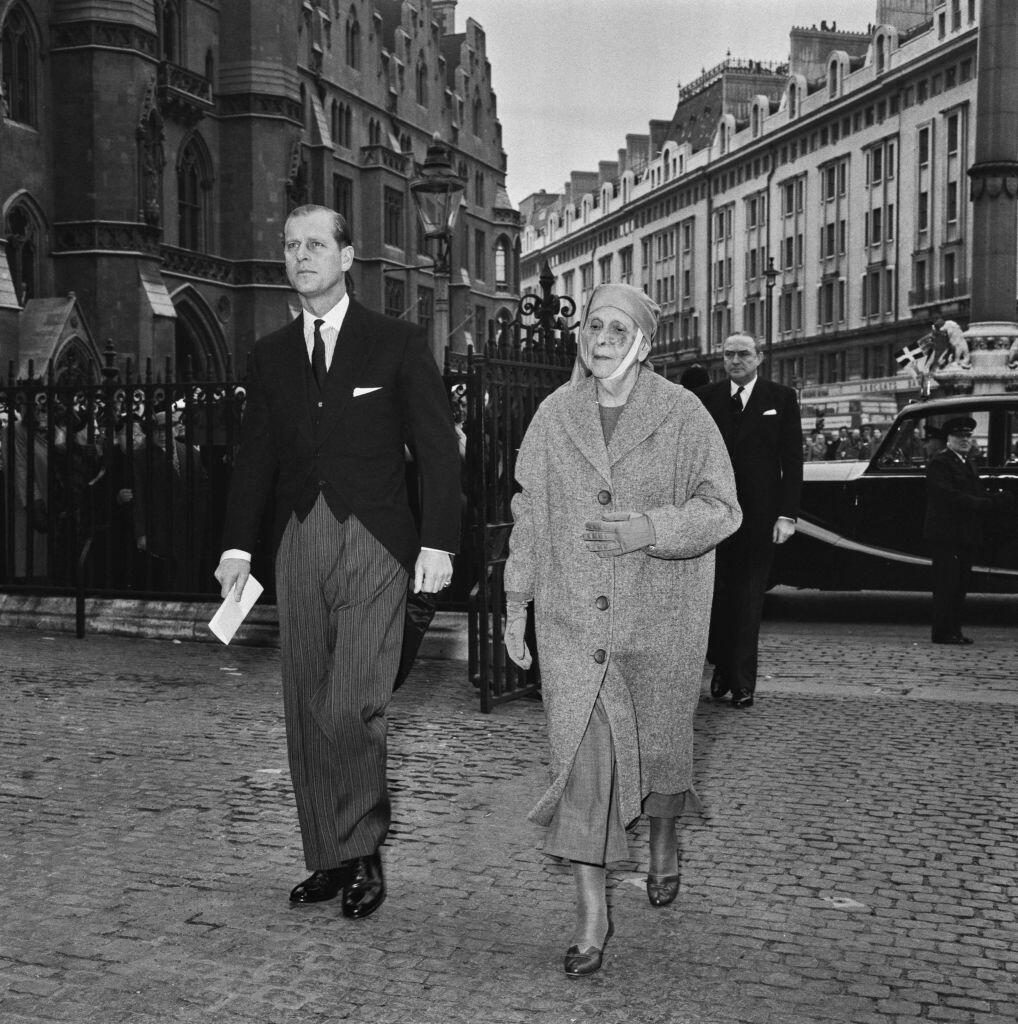

Princess Alice of Battenberg and her son Prince Philip
(Photo: Evening Standard/Hulton Archive/Getty Images)
During the Nazi occupation, thousands of Jews in Athens sought refuge. Alice hid Rachel Cohen and two of her five children, saving them from the Nazis' brutal hands. Alice died in 1969 at the age of 84, and two years later, her remains were moved to the Mount of Olives in Jerusalem at her request. Twenty-four years after her death, she was honored as Righteous Among the Nations by Yad Vashem.
Let's go back a bit: after Oliver Cromwell opened Britain's doors to Jews, a prominent rabbi of the time composed a prayer for the Sabbath—"The Prayer for the Royal Family." It is one of the few elements of synagogue liturgy in Britain recited in English and is well-known among British Jews. Insiders say it is one of the few English prayers recognized throughout the community, though it is not part of any official religious or national education curriculum.
Following Queen Elizabeth's death in September 2022, Chief Rabbi Ephraim Mirvis published a special prayer in Hebrew and English to mark her passing and updated the royal prayer to seek blessings for "Our Sovereign Lord King Charles, our Gracious Queen Camilla, the Prince and Princess of Wales and all the Royal Family."
However, even a weekly prayer did not lead the late Queen Elizabeth to lift the unofficial royal boycott of Israel. During her 70-year reign, Elizabeth visited more than 120 countries worldwide—Israel was not one of them.
In 1994, Prince Philip made an unofficial visit to Israel to receive Yad Vashem's recognition for his late mother, who was honored as Righteous Among the Nations. A year later, Charles, then prince, came to Israel to attend the funeral of former Prime Minister Yitzhak Rabin, and in 2016, he returned for the funeral of the late President Shimon Peres. This unofficial boycott persisted until 2018, when Prince William made the first official royal visit to Israel.
William visited Israel to celebrate its 70th anniversary of independence and visited his grandmother's grave on the Mount of Olives in Jerusalem. Two years later, Charles returned to Israel and participated in a ceremony at Yad Vashem marking the 75th anniversary of Auschwitz's liberation.
9 View gallery
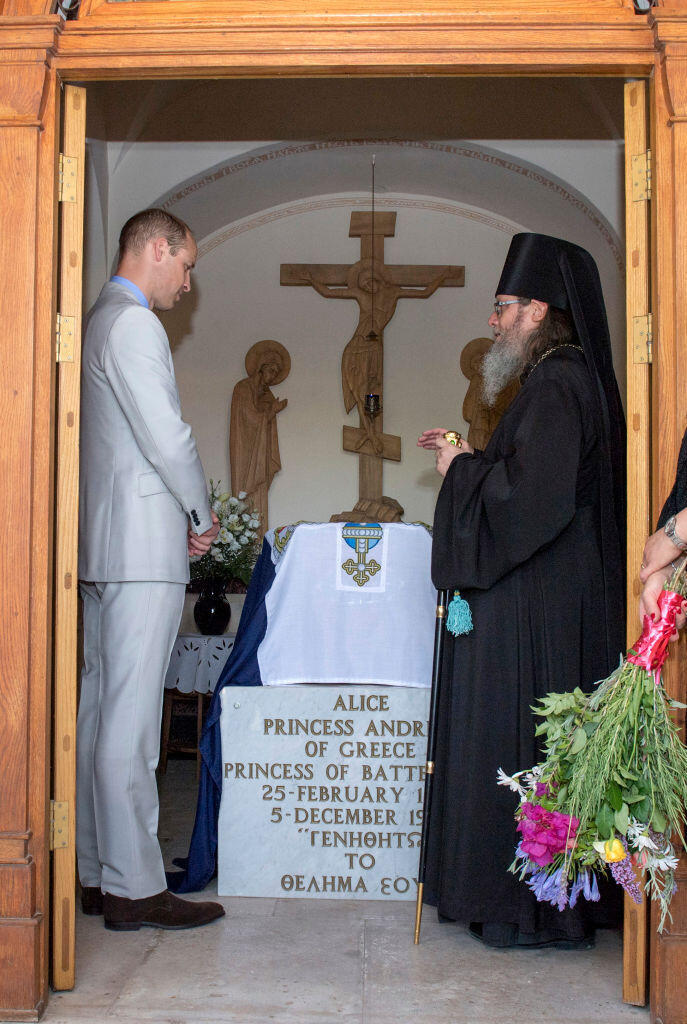

Prince William at his grandmother's grave on the Mount of Olives in Jerusalem
(Photo: Arthur Edwards - Pool/Getty Images)
As for Elizabeth, who never visited Israel, insiders say she was willing to visit once there was sustainable peace, despite having visited Arab countries in 1984. Her close associates revealed she remarked about that visit: "How frightening it was to see Israeli planes flying overhead."
Despite the unofficial royal boycott of Israel, Queen Elizabeth hosted numerous Israeli leaders at her palace. In 1959, she invited Israeli Ambassador to the UK Eliahu Elath for dinner and an overnight stay at Windsor Castle. Such invitations were then reserved for senior UK government officials or Commonwealth representatives, not diplomats.
In 1976, former President Ephraim Katzir joined the queen for lunch at Windsor Castle. In 2008, Shimon Peres visited the palace for a three-day visit and was knighted by the Queen, marking sixty years of relations between the two countries.
9 View gallery
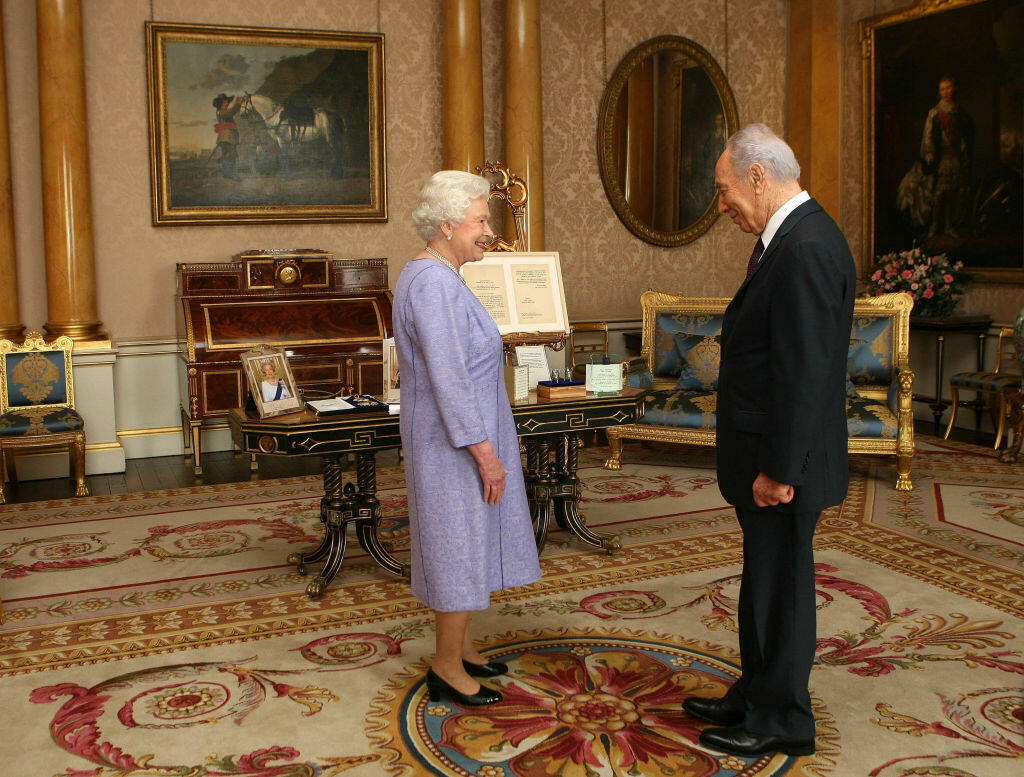

Queen Elizabeth II and President Shimon Peres
(Photo: Katie Collins - PA Images/PA Images via Getty Images)
The next visit by an Israeli representative took place in September 2022, when President Isaac Herzog flew to pay his last respects to Queen Elizabeth. Eight months later, in May 2023, Herzog returned to the palace for the coronation of King Charles III.
Boycott or not, one thing is clear: the British royal family honors the memory of the Holocaust. In 1996, during a visit to Poland, after facing severe criticism for not stopping at the Auschwitz concentration camp, Queen Elizabeth made an unscheduled stop and laid a wreath at the Umschlagplatz Jewish memorial in Warsaw.
In 2000, Elizabeth inaugurated Britain's first permanent Holocaust memorial and contributed an additional $25.5 million to the Imperial War Museum in London. This expansion included Holocaust-era artifacts, a railway car and a model of a death camp.
Five years later, on the 60th anniversary of Auschwitz's liberation, Elizabeth hosted 300 Holocaust survivors at St. James's Palace. She stayed well past her scheduled departure, listening to their stories and giving them her full attention.
Elizabeth was the patron of Holocaust Memorial Day in Britain from its establishment in 2005 until she handed over the role to her son Charles in 2015, when she also pledged "never to forget" the victims of the Holocaust.
9 View gallery
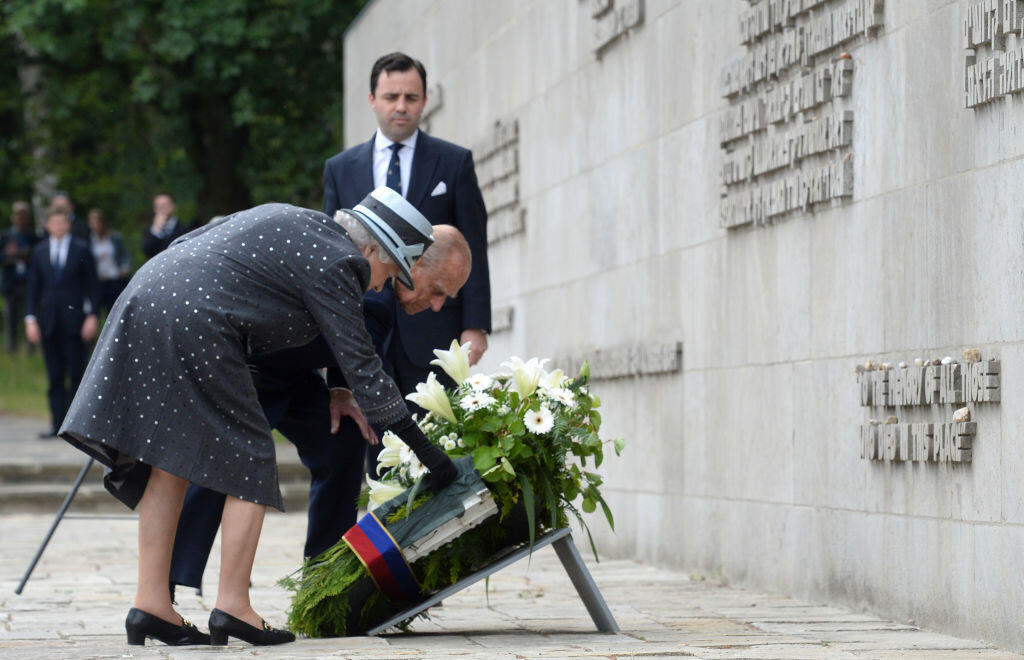

Queen Elizabeth lays a wreath at Bergen-Belsen
(Photo: Julian Stratenschulte/picture alliance via Getty Images)
That same year, she made her final official overseas trip to Germany, where she visited a concentration camp for the first time. She laid a wreath at Bergen-Belsen, met with Holocaust survivors, and visited the memorial dedicated to Anne Frank.
Over the years, the British royal family has consistently emphasized the importance of Holocaust remembrance and has met with Holocaust survivors annually. In fact, just this past February, during the height of the Gaza war and a significant surge in global antisemitism, Prince William visited a synagogue in London. There, he met with a Holocaust survivor and young Jews who shared their concerns about the alarming rise in antisemitism.
Renée Salt, 94, recounted her experiences in a Nazi concentration camp, prompting the prince to ask how she managed to survive. "It wasn't easy, but somehow I made it," she replied.
Prince William held Salt's hand as she shared how her family had suffered from the recent rise in antisemitism. "I'm so sorry it has come to this," the prince said, promising that things would improve. "There is no place for antisemitism in society, no place for prejudice. I've said it before, and I'll say it again. I want you all to know you can speak about this issue and your experiences."
9 View gallery
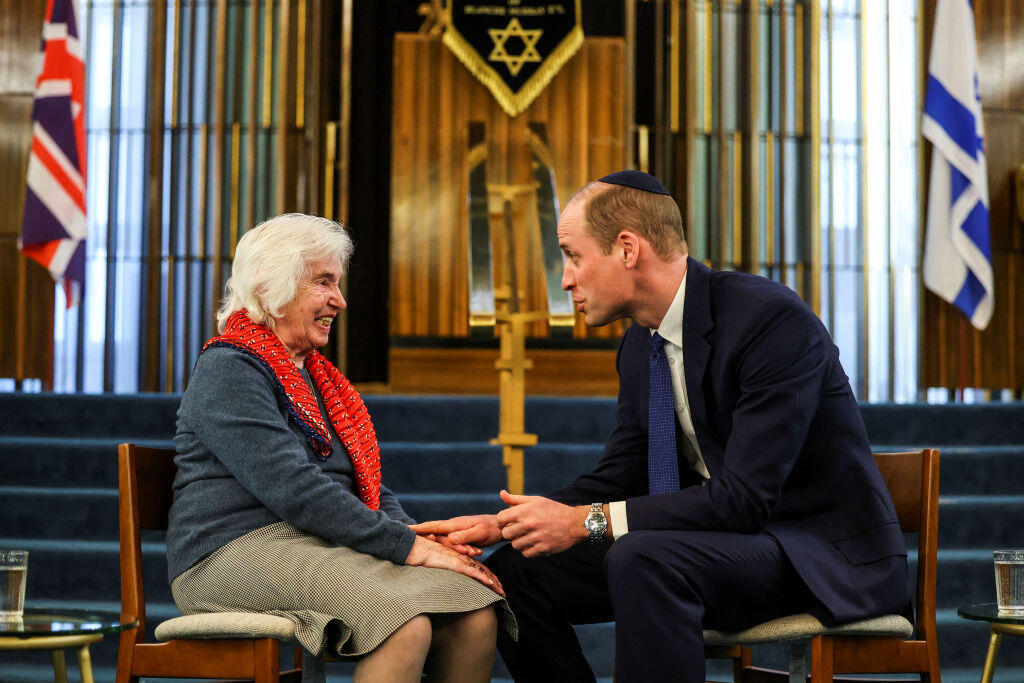

Prince WIlliam and Holocaust survivor Renée Salt
(Photo: Toby Melville - WPA Pool/Getty Images)
Regarding relations with Israel, the royal family certainly needs to work a bit harder. When the Gaza war broke out and the horrific atrocities committed by Hamas on October 7 were revealed, Prince William and Kate Middleton, along with King Charles, quickly condemned the terrible acts but soon shifted their stance.
"I remain deeply concerned about the terrible human cost of the conflict in the Middle East since the Hamas terrorist attack on 7 October. Too many have been killed," William said last February.
“I, like so many others, want to see an end to the fighting as soon as possible. There is a desperate need for increased humanitarian support to Gaza. It’s critical that aid gets in and the hostages are released.
“Sometimes it is only when faced with the sheer scale of human suffering that the importance of permanent peace is brought home,” the prince further wrote.
“Even in the darkest hour, we must not succumb to the counsel of despair. I continue to cling to the hope that a brighter future can be found and I refuse to give up on that.”


